Americans need more sleep, less stress, experts say, as Gallup poll reveals troubling findings
- Oops!Something went wrong.Please try again later.
Many Americans are getting too little sleep and have too much stress.
A new Gallup poll revealed 57% of adults would "feel better if they got more sleep," while 42% said they get "as much sleep as they need."
These findings have nearly reversed in the last decade, Gallup noted in a press release. The last measurement in 2013 found that 56% of Americans got the sleep they needed while 43% did not.
LACK OF SLEEP COULD BE A FACTOR IN A ‘SILENT EPIDEMIC,' EXPERTS WARN
Overall, however, Americans are getting fewer hours of sleep than they did in past decades.
In 1942, 59% of Americans were getting eight hours or more of sleep per night, while only 3% were getting five hours or less.
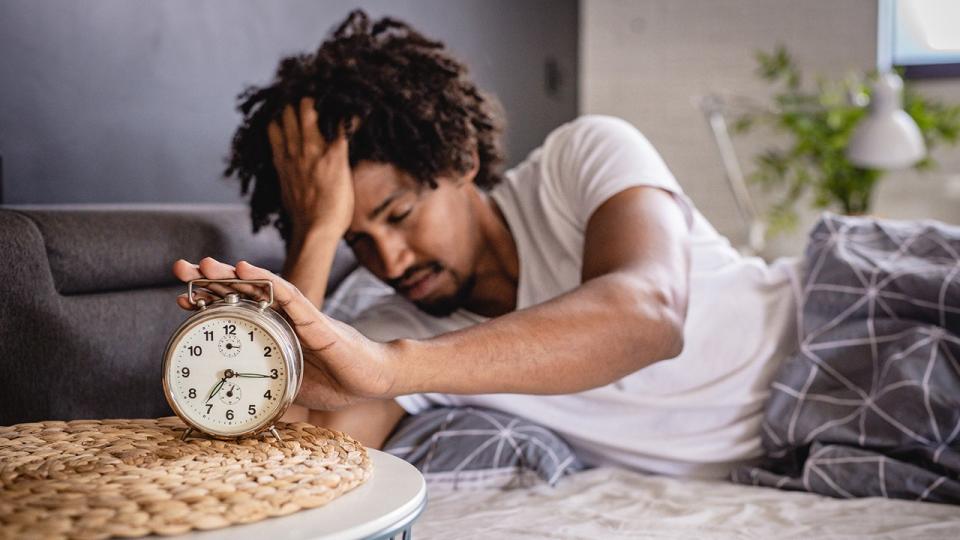
In 2024, only 25% of Americans get an average of eight hours of sleep, and 20% reported sleeping for five or less.
Young women are the least likely to get enough sleep, according to the study — with 36% of females versus 48% of males reporting getting enough shuteye.
SLEEP DISORDERS AND SUICIDE: A MENTAL HEALTH EXPERT REVEALS THE CONCERNING LINK
Sleep amounts for both men and women showed "significant declines from previous readings in 2013 and 2004," according to Gallup — and are the lowest measured for each group to date.
The decline was found across all age groups, although young adults between ages 18 and 29 saw the smallest difference.
Gallup suggested that an uptick in stress could be driving this downward trend in sleep, as the American Psychological Association reports a "strong connection between stress and sleep quality."
The poll showed that 63% of Americans who reported wanting more sleep also "frequently experience stress."
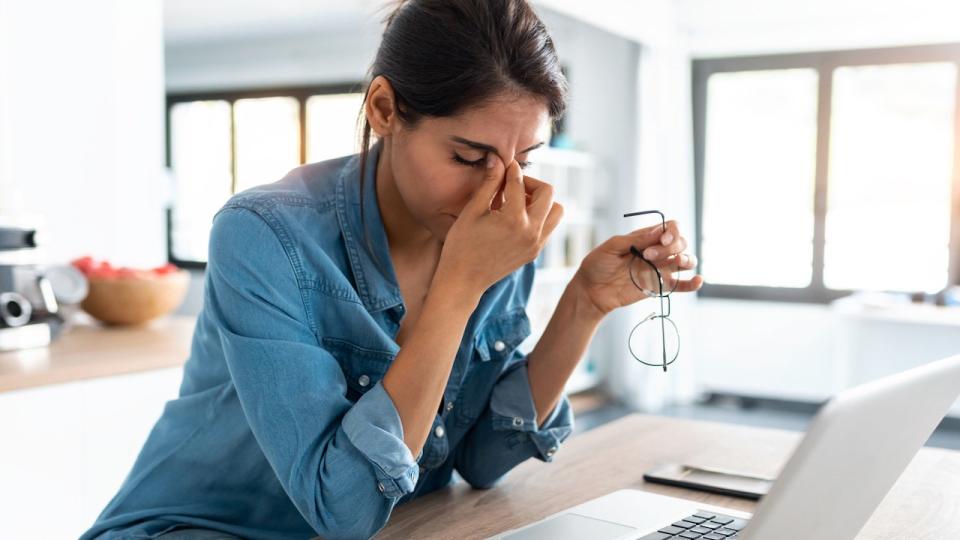
"Over the past 30 years, the number of Americans who are stressed has been on a steady incline after a sharp drop in 2003," Gallup reported.
"The most recent data show that nearly half of all Americans, 49%, report frequently experiencing stress — up 16 points over the past two decades and the highest in Gallup’s trend to date."
IMPROVE YOUR SLEEP BY OPTIMIZING 6 BIOMARKERS: ‘INTEGRAL TO HEALTH’
Young women are also most likely to frequently experience stress, "exceeding men their age by 14 points," according to Gallup.
Dr. Marc Siegel, clinical professor of medicine at NYU Langone Medical Center and a Fox News medical contributor, confirmed this relationship between sleep and stress, calling it the "cycle of worry" during a Thursday appearance on "America’s Newsroom."

"They’re connected," he said.
"If you get more stressed, you don’t sleep; if you don’t sleep, you get more stressed."
Siegel explained that "all of this spirals out of control," since sleeplessness is often remedied with caffeine — yet caffeine "interferes with your sleep cycle."
The same goes for drinking alcohol before bed to induce sleep, which "wears off and you wake up in the middle of the night," the doctor warned.
Exposure to the blue light of smartphone screens can keep people awake, Siegel said.
WANT TO BE A MORNING PERSON? THESE 6 EXPERT TIPS MAY GET YOU THERE
"All of this is very bad for health," he said. "It leads to heart disease, it increases your risk of stroke, it causes you to gain weight."
For young women in particular, several factors could be causing them to lose sleep, including the use of social media, which can "feed anxiety," Siegel said.
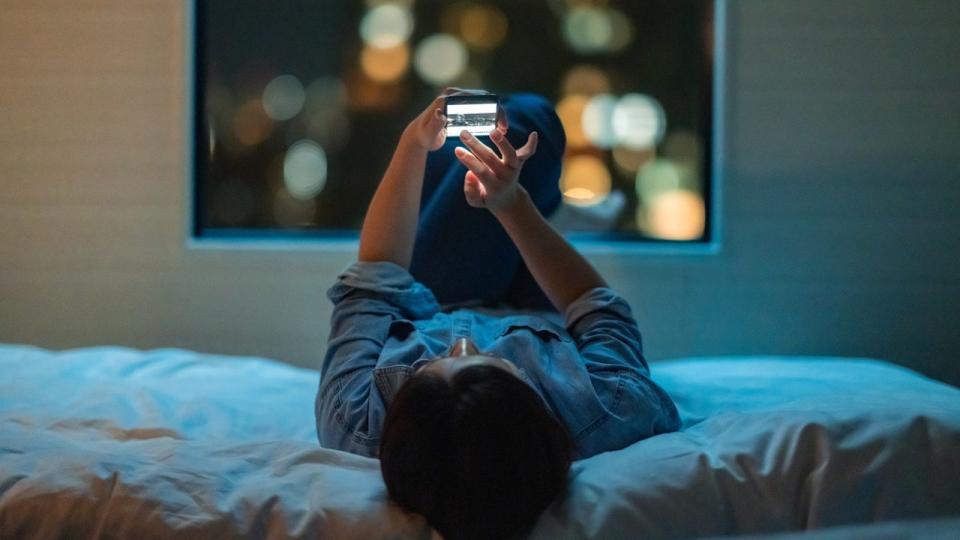
A potential fix for the sleep-stress cycle is practicing "sleep hygiene," Siegel suggested, which includes sleeping in a dark room away from your cell phone.
"I treat stress and sleeplessness as the same thing," he said. "That’s why I don’t believe in sleeping pills … You’re just covering up the problem."
He added, "I want to get at why you’re worried and what I can do about the worry."
SLEEPING WITH LIGHTS OFF AND CLOSED BLINDS MAY PROTECT YOUR HEALTH: STUDY
Dr. Wendy Troxel, a Utah-based sleep expert and senior behavioral scientist at the RAND Corporation, told Fox News Digital in an interview that stress levels have remained "very high" since the COVID pandemic.
"[For] populations navigating multiple demands, including young people who are going to school or starting new jobs in this topsy-turvy world, it's understandable that they are experiencing increases in stress, and that's manifesting increases in sleep disturbances," she said.
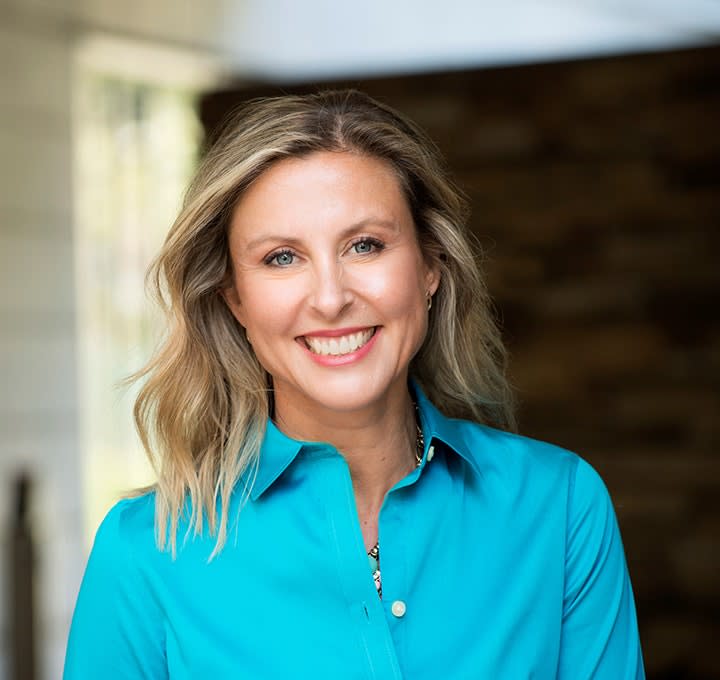
In some instances, Troxel pointed out, lack of sleep has been worn as a "badge of honor" to prove that people are busy or productive.
"But I think that that cultural misconception is starting to wane," she said.
"The reality is, as a culture, we've just become more aware of the importance of sleep over the past 10 years, which is a great thing."
CLICK HERE TO SIGN UP FOR OUR HEALTH NEWSLETTER
To break the "vicious cycle" of stress impacting sleep and vice versa, Troxel offered several tips, including maintaining a consistent sleep and wake schedule to ensure that stress doesn’t "invade your life."
Incorporating a wind-down routine prior to bed can also bring down stress levels, the sleep expert noted.
These routines can involve relaxing activities such as deep breathing exercises, cuddling with a partner, journaling, doing gentle yoga or listening to music.
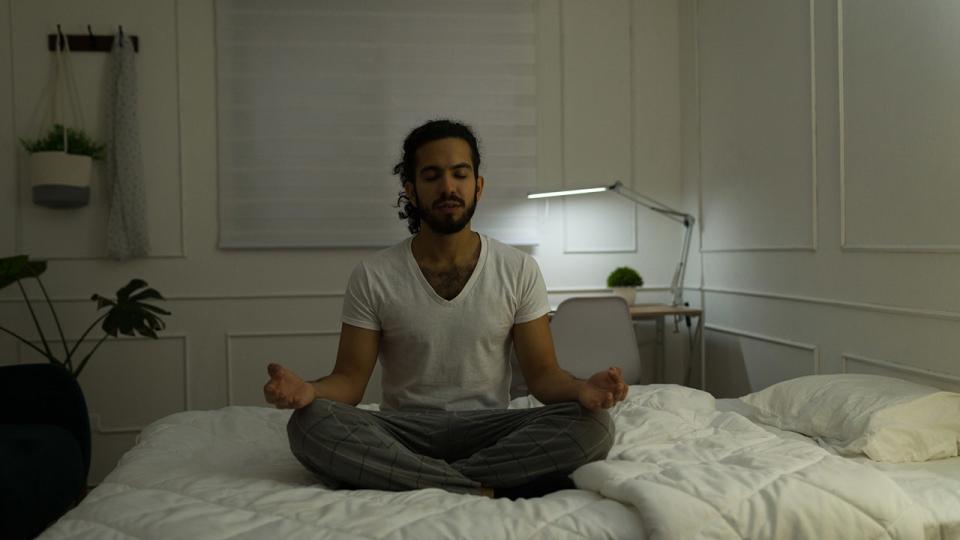
"It’s just about finding something that you can ritualize and do on a nightly basis to set the stage … to put aside all the demands and stress of the day and prepare for winding down and [going] to sleep," Troxel said.
For people who wake up in the middle of the night due to stress, she advised getting out of bed, performing a wind-down activity and then returning to bed.
This technique, called stimulus control, prevents the brain from forming the habit of waking up at a certain time to ruminate on stressful thoughts.
"We all have occasional stress-related sleep disturbances, but if that starts happening night after night, it becomes habit-forming," she said.
"And that's where we see more chronic problems like insomnia. So, if you see that happening, treat it as a habit that your brain is learning — and break it."
For more Health articles, visit foxnews.com/health.
Original article source: Americans need more sleep, less stress, experts say, as Gallup poll reveals troubling findings

